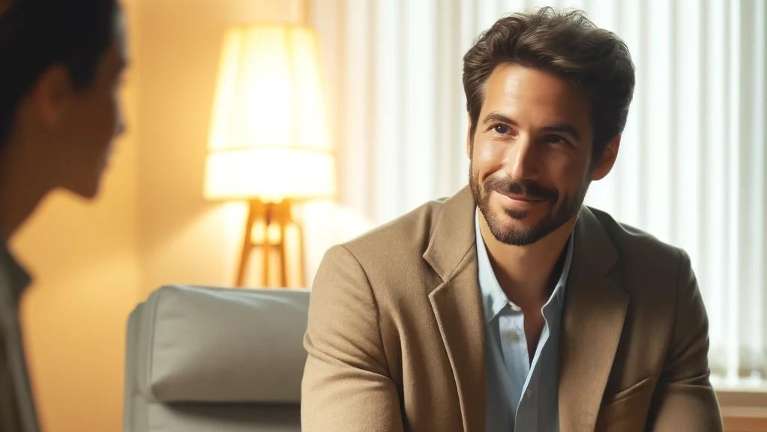
There’s been a growing awareness in recent years that therapy hasn’t always met men where they are. Many of the male clients we see at Clarity Counseling Seattle arrive with a similar hesitation—they want support, but they’re not sure therapy is a space built for them. As Seattle therapists who frequently work with men in high-demand careers like tech, law, or finance, we’ve come to understand just how important it is to adjust the therapeutic approach so it resonates with men’s real-life challenges, not just clinical theory.
Why Therapy Often Feels Like a Mismatch for Men
Society sends men a lot of mixed signals: be strong, but open up; don’t show too much emotion, but don’t be disconnected either. These pressures can lead to emotional suppression, chronic stress, and a sense of being stuck. In relationship therapy, we often see how these internalized expectations spill over into communication struggles and emotional distance. Many men want to show up differently in their relationships but haven’t been taught how.
Some delay seeking help until things reach a breaking point—whether that’s burnout, conflict at home, or a deep sense of isolation. That delay often stems from the belief that vulnerability equals weakness. But therapy, at its best, helps men build emotional strength—not diminish it.
How Therapy Can Actually Meet Men’s Needs
We take a personalized approach to men’s therapy, one that values practicality, clarity, and emotional safety. Here are a few of the ways we do that:
- Focusing on tangible, solution-oriented tools while still creating space for deeper emotional exploration
- Normalizing common struggles and helping men recognize they’re not alone in them
- Helping men express emotions in ways that feel authentic and manageable
- Exploring how intimacy and sexual connection are often impacted by unspoken emotional burdens—something we address in sex therapy and marriage counseling
We also support partners who are trying to understand the emotional inner world of the men they love. For many, “how do I help my husband open up?” is not just a question—it’s a plea.
Mark’s Story: Reclaiming Emotional Connection
Mark, a 45-year-old father and professional, came to therapy feeling disconnected from his wife, burned out from work, and uncertain about how to be emotionally present with his child. Though highly successful in his career, he felt emotionally inadequate at home. He knew he wanted to raise an emotionally intelligent son—someone unburdened by outdated ideals of masculinity—but felt ill-equipped to model that path.
In therapy, we explored the roots of his emotional shutdown and helped him name the deeper fears underneath. With time and trust, Mark began opening up—not just in session, but also with his partner. He also addressed long-ignored intimacy struggles by engaging in conversations about male sexual health that he’d never had before. Through a combination of individual counseling and couples therapy for one, Mark learned how to be more present, more attuned, and less reactive.
Why This Work Matters
Supporting men’s emotional health isn’t just good for the men themselves—it strengthens families, relationships, and communities. We’ve seen how therapy can be a turning point for men who feel isolated, stuck, or misunderstood. Whether the focus is on healing, intimacy, parenting, or identity, therapy for men in Seattle can be a meaningful place to reconnect with your own emotional life—and learn how to share that life with others.
Looking Ahead
We believe modern therapy is evolving for the better—but there’s still work to do. If you’re a man who’s been unsure whether therapy is really for you, or if you’re partnered with someone who feels emotionally distant, we’re here to help. The right therapeutic fit can make all the difference. Reach out today to learn more about how we tailor our approach to support men—on their terms.

